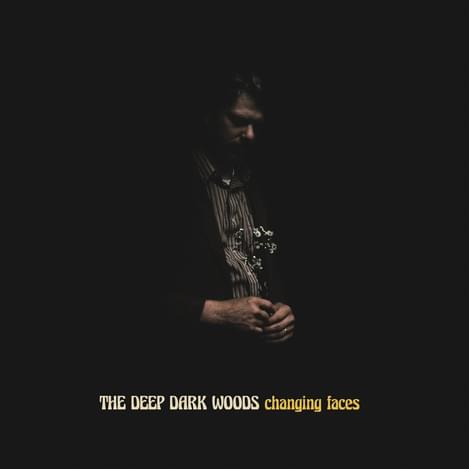The Deep Dark Woods revel in traditional structures and contemporary atmospheres on Changing Faces
"Changing Faces"

The set’s opener, “Treacherous Waters,” spotlights Ryan Boldt’s mercurial voice, reminiscent of a forlorn Roy Orbison, and the band’s affinity for swampy textures. An oblique take on loneliness and betrayal, the song employs visceral images to evoke a sense of loss and dislocation (“They’ve tied my hands and tossed me to the waters,” “the air it is lifeless,” “my body aches and my senses are gone”).
“How Could I Ever Be Single Again?” is a riff on the traditional folk waltz. Boldt and Kacy Anderson (of Kacy & Clayton) offer a distinctly crystalline harmony on the chorus. “Anathea” is a sultry narrative accompanied by a thumping acoustic guitar, sweeping string parts, and bursts of ambient distortion that bring to mind Jaye Jayle and Emma Ruth Rundle’s solo work.
“When I Get Home Tonight” is a diaristic manifesto re: bipolar disorder. The singer, who seems more prone to depression than mania, recalls various odysseys, including seeing the “halls of Ypres” and the “statues of Constantine.” He concludes each verse by lamenting how “the highs are so high and the lows are way too low.” What sound like muted trumpet blasts at the end of the song convey a sense of truncated celebration, conjuring a party that’s winding down despite the singer’s desire for it to continue indefinitely.
The “she” of “In the Meadow” is a naiad or nymph with whom the singer forges an auspicious relationship, Mike Silverman’s percussion hammering a staccato yet murkily hypnotic tempo. The “she” in closer “Yarrow” is also a magical being, light “gleaming through her blouse.” The singer, akin to various characters in myths and fairytales, views the intervener’s blessing as integral to his own well-being (“If ever I lose my love / It’ll be my downfall”).
While Changing Faces displays The Deep Dark Woods’ proficient songcraft, the album’s atmospheres are what distinguish the venture from previous outings and comparable projects by others. Elements of goth-folk and dreampop as well as, perhaps, the hardscrabble austerity of such literary/cinematic sources as Winter’s Bone, coalesce seamlessly, the band invoking a limbic space in which time seems suspended and there’s no difference between day and night.
Get the Best Fit take on the week in music direct to your inbox every Friday

Tunde Adebimpe
Thee Black Boltz

Julien Baker & TORRES
Send A Prayer My Way

Bon Iver
SABLE, fABLE





